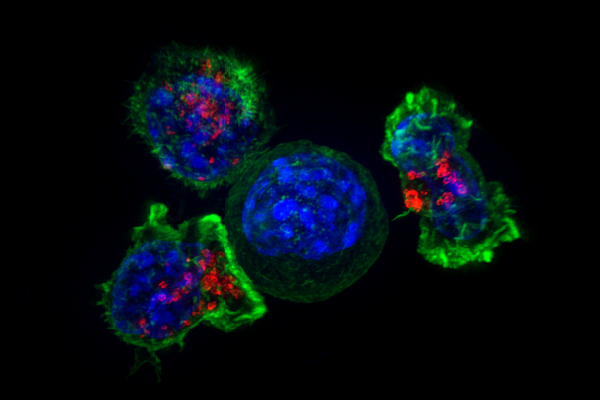
A study by researchers at Mayo Clinic Cancer Center in Florida is validating the use of genomic sequencing to predict the likelihood that patients with gastric cancer will derive benefit from chemotherapy or from immunotherapy. The study is published in Nature Communications.
“Gastric cancer is among the leading causes of cancer-related death, worldwide,” says Tae Hyun Hwang, Ph.D., the Florida Department of Health cancer chair at Mayo Clinic Cancer Center in Florida.
Dr. Hwang says most patients with gastric cancer are treated with chemotherapy, and sometimes immunotherapy, as part of their treatment plan. However, not all patients derive benefit from these therapies.
“We sought to use genomic sequencing to build a model that predicts the likelihood that a patient will derive benefit from chemotherapy or from immunotherapy,” says Dr. Hwang.
To build this model, Dr. Hwang and his team developed and implemented a machine learning algorithm that integrated genetic data from more than 5,000 patients. Then the team developed a molecular signature consisting of 32 genes that could be used to guide patient care decisions.
“We were pleased that our 32-gene signature provided not only prognostic information, but also predicted patient benefit from chemotherapy and immunotherapy,” says Dr. Hwang. “In particular, we were surprised that the 32-gene signature we identified was able to predict a patient’s response to immunotherapy because identifying reliable biomarkers for immunotherapy response in patients with gastric cancer has been a challenge for the field.”
Dr. Hwang says the 32-gene molecular signature still needs prospective validation, but he believes it eventually will be able to identify patients who are likely to respond to chemotherapy and immunotherapy. “Similarly, we would also be able to identify patients who are unlikely to benefit from chemotherapy and immunotherapy, thereby sparing them the potential side effects of these therapies,” says Dr. Hwang.
Source: Read Full Article
